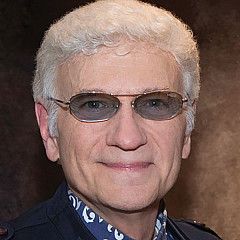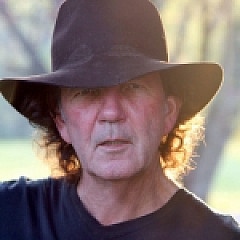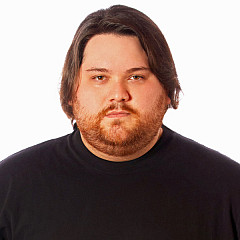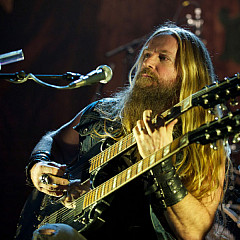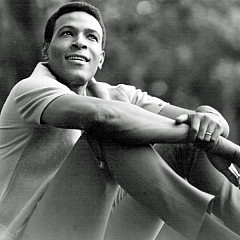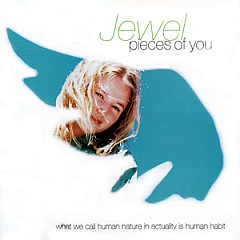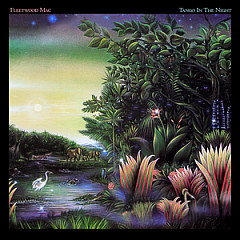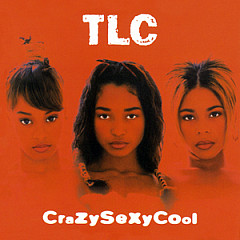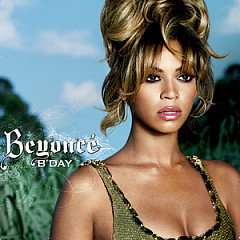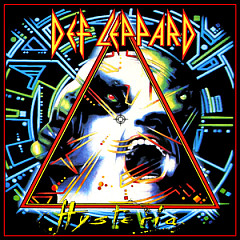Considered part of the "New Wave of British Heavy Metal Movement" of the early '80s, Newcastle natives/brothers John Gallagher (vocals/bass) and Mark Gallagher (guitar) quickly stood out from the pack with their high-energy, no-holds-barred live show, as well as albums that became extremely popular in the heavy metal underground (1981's Rock Until You Drop, 1982's Wiped Out, and 1983's All for One). But with more and more acts softening their look and sound in hopes of becoming both video and radio stars in the US, Raven gave in to the glam: their drummer Rob "Wacko" Hunter began wearing facial make-up (under his hockey/birdcage mask!) around 1985, and a year later, they issued The Pack is Back, which was an obvious attempt to cross over to the pop-metal style (Mötley Crüe, Ratt, Kiss) that MTV was championing at the time. The ploy failed, and it cost them in credibility. The group never broke through, and watched as their one-time tour mates, Metallica and Anthrax, stuck to their stylistic guns and were rewarded.
John Gallagher recently took some time to discuss this disastrous change in direction, and also recall some of his more memorable moments with Raven, including shows with a young-and-hungry Metallica back in '83/'84, and the creation of one of metal's greatest album cover shots.

Greg Prato (Songfacts): Let's discuss the new documentary, Rock Until You Drop. How did it come about?
John Gallagher: The genesis came a few years ago when there was a company in New York that wanted to put out a "Best Of" Raven, and it kind of fell apart - they flaked out on us. I put all this stuff together and we said, "You know, let's just do a box set with all the stuff everyone's never heard before," and we put out an album called Raw Tracks, which was all the demos that never came out. The idea was kicked around back then, and I said, "Wow, it would be great if we could do a DVD along the lines of this."
We'd done a DVD back in the early '90s called Electro Shock Therapy, which only came out in Europe. It was basically filmed when we were on tour - it was live stuff and us clowning around. It was very entertaining. It was a lot of fun. We just figured it would be good to "long form" this at some time, because my brother had been collecting and archiving for a few years. Then we were talking to our record company, and they were like, "Let's do it."
So my poor brother locked himself in a room for the best part of a year, turned his eyes into road maps, and put this together. It's pretty much the history of the band from when we started all the way through. It's not really, "Oh, let's just sit down and watch this," because it came in too long. It's three hours, plus the actual so-called documentary part, so it's really for the diehard fan. We didn't want to compromise this into a fluffy little one hour thing. Very little is left on the cutting room floor. It's all in.
Songfacts: People like Lars Ulrich from Metallica and Chuck Billy from Testament have some nice things to say about Raven in the documentary. How did that make you feel hearing your peers saying such things?
Gallagher: It's very gratifying. Lars is very cool, and was excited about doing it. He talked for a long time; he was very complimentary and had a lot of good stuff to say. I think he comes off really well in this, because there are other ones I've seen him in where he's playing "Mr. Rock Star." But he's very down to earth, very honest, and very cool. Chuck did some great stuff. Dee Snider came out of the woodwork and did a great little thing for us, totally unprompted. It was wonderful. I've run into Chris Jericho, who I've done an interview with. He's a rock guy, actually, for years. He's playing with his band, Fozzy, and he just said, "Hey, come to the show." He was playing a festival and we went there. Really good guy. He's been a fan since day one, so his little part was really cool, too.
Somehow I got hold of Steven Thompson [the co-producer of Rock Until You Drop] at the start of this record, and he did a wonderful piece about the thing with the first record. Really fun. The guy was so funny. Hilarious. And of course, we got Michael Wagner. Me and the wife went down in Nashville for a couple of days and hung out. We connected with Michael; we did a record 10, 12 years ago with him down there. And that was awesome, too. Got a lot of good stuff.
Songfacts: In the concert clips, it shows that the band is still one of the most high-energy metal bands.
Gallagher: Yeah. Someone asked me, "How much pure stock footage is in this?" There's not much. A lot of those videos are like, "Hey, look how much money we've got. We can have a 24 camera shoot and we can span from here to eternity to make this look like a greatest thing since sliced bread." But when you've got one camera, you can't hide. You're either good or you're not.
Songfacts: How does the songwriting work in the band?
Gallagher: It's a mixture. It's a collaboration in the sense that whoever brings something to the table gets to watch it ravaged by the other two wolves. My brother's very spontaneous. He's the guy who'll just sit down and off the top of his head play a song from top to bottom. On the last record, we had a song called "Train Wreck." It was the typical uptempo Raven rocker thing. I had this (singing sounds) all the way through, and thought, wow, this is great. It sounded funny, so he put some funny lyrics to it.
When we were writing for Nothing Exceeds Like Excess, he just sat down and started playing, and he played "Die for Allah" off the top of his head - stream of consciousness from start to finish. It's lucky we had the tape recorder running. That went on for like 7 minutes, and it's unbelievable, because there's all this light and shade, up and down and craziness and fast riffs.
I'm a bit more methodical. I'll write loads and loads of riffs and then start going back, gluing this one, fit with this one, this one'll fit with this. It's all with the music, and then the music will suggest. I may jot down titles or phrases, and something will jive and I'll try to work around that. You get in a frame of mind, you sit down and go, "Okay, I'm going to write a song now." More often than not you're not going to get a lot of good stuff out of it, but every now and again you tune into something and it's there. And when those days happen, you don't want it to turn off.
Songfacts: Let's look back at some of Raven's classic songs and your memories of writing them. "Faster Than the Speed of Light," what do you remember about the writing of that?
Gallagher: It was a time when we really wanted to up the ante from the first record. We wanted a record that was crazy, with every song faster than the next. We were all set to disappear up our own behinds, very quick.
That was me reading a whole bunch of physics books. There were all these things about the possibility of traveling faster than light. Well, this is perfect, a fast song, faster than the speed of light.
It's very unusual. It's in a key of D, very bright, very not dark. There's not a lot of discord. You hear so many riffs these days which are just, "Take the most wrong note possible and put it with the next one." This one was very major in theme and in feel. A lot of breaks. A huge part in the middle Iron Maiden ripped off and put into "Aces High." But that's another story.
Songfacts: What about the song "Crash Bang Wallop"?
Gallagher: That was actually the same session. That was a cool riff that Mark had come up with. It's these wonderful little suspended cords and the verse is very catchy. And as I still introduce it, it's dedicated to the man who is sneaking back into the house around 3 or 4 in the morning after a drinking session. He gets caught by his wife, girlfriend, or dog, and gets screamed at.
On the original studio recording, you can hear me doing this Monty Python style "hard woman rant," which was done in one take. I wish I had a tape of it without the background, because at some point I'm screaming about sucking the brains out of dead turnips. I have no idea where that came from, but very strange. We just faded it in and out, in and out before the solo. It was pretty funny.
We recorded and mixed the Wiped Out album and the Crash Bang Wallop EP [a 4-song 12" released in the UK] in six days, which is just absolutely insane, just craziness.
Gallagher: "On and On," we had a situation where we were very much in transition. We wanted to break away from Neat Records in England. We moved all our gear, because it was staying in their studio. Moved it all out. We wanted to come over to tour America so we'd get a deal. That was very much up in the air and we were writing a whole bunch of songs. That was one of the strongest, but the chords weren't quite right for the demo, so it's going (singing), "On, and on, and on..." really disjointed. We finally got it together. We were recording a record which was initially to get off Neat Records - we weren't even going to do that song. And then Atlantic was interested, so we worked on the song. We knew it was magic, the song. It was one of the hardest ones we've ever had to do. A lot of technical problems. Mark was playing a guitar with bad intonation, and there were a lot of suspended chords on that. It got to the point where he just threw it across the room and Mark said, "That's it, I'm going to the bar! I'm done."
That first time we'd done so many vocals; there were about 18 to 20 tracks of vocals, and it was all me - it was all done in the old fashioned way of singing it, three part harmony or what have you. Just double, triple, quadruple, over and over again. It took a long time compared to everything else, but we just knew the song was that good.
Songfacts: Do you agree that Raven helped create thrash metal?
Gallagher: Well, we're definitely to blame [laughing] partially, if nothing else. I mean, it's one of these things where it's transitional music: one band will maybe push it in one direction and then somebody else - like a relay - takes it and moves it further forward. We were one of the first bands to play it pretty fast and do a lot of that stuff.
And where did we get the baton from? We got it from Montrose, Deep Purple and Judas Priest, who either to a different or lesser extent were doing something similar. We used elements and refined them in a slightly different direction, put a bit more energy into it. Then the bands that came after us removed some of the melodic content, put a little bit more discord into it, and put their own energy into it.
I hear a lot of people saying it's cool to hear that you've influenced bands. We played this one show in Germany in '83, and basically everyone in there had just started a band. We'd hear about Kreator, Rage, Coroner, Doro Pesch - a whole bunch of bands. This one little show, it was really amazing to hear afterwards, "You guys are the reason we're in this."
Songfacts: How would you describe the local scene that Raven came out of at the time, at the very beginning? Was the competition fierce or was it a one-for-all type vibe between the bands?
Gallagher: It was strange. There were very few metal bands, believe it or not. There was the Tygers of Pan Tang, who at the time came off a little snooty. They were from a posher background. Where we were, everyone was working class, nobody had two pennies to rub together. There was another working class band that was called Axe, who had been around a lot longer. They changed into The Fist and they came out at the same time as us. They were a good band. Venom of course was more of a studio project than a live act. They were responsible for a lot of other stuff.
And nearly all the bands that we were playing pubs and clubs with, they all wanted to be the Eagles. There were all these horrible melodic bands and we were the god-awful little assholes down the street that used to make a big racket and smash all the gear up. A lot of them were older, but a lot of them we got on with pretty well. They got us into that club scene. We were playing, even from the start, half original, half covers, and we were off and running.
Songfacts: How long did it take to clean up the room after the photo shoot for Rock Until You Drop?
 Gallagher: [Laughing] Oh, not as long as you'd think. It was very carefully put together. We asked David Wood, the long suffering Benny Hill lookalike at Neat Records, to see if he could send a photographer down: "We've got a great idea for a cover." Just buried in all our gear. "Oh, yeah, sure, great."
Gallagher: [Laughing] Oh, not as long as you'd think. It was very carefully put together. We asked David Wood, the long suffering Benny Hill lookalike at Neat Records, to see if he could send a photographer down: "We've got a great idea for a cover." Just buried in all our gear. "Oh, yeah, sure, great." He sends this guy down who was like a wedding photographer. It was in kind of an underground car park, and there were these lot rules from when we used to rehearse. He walked in there and his jaw hit the ground. He didn't know what to think. Then he got into it a little.
What's pretty funny is one of the reissues has got a whole bunch of outtake photographs, which is probably all they had, because when we left, my brother helped himself to most of the photographs so they wouldn't come out, or at least we'd have control of them. He definitely picked the right shot, that was for sure. [Laughing]
Songfacts: When did you first hear Metallica and what were your first impressions of them?
Gallagher: That's a good one, as well. We'd already done a couple of shows, and in Halloween '82, Jonny Z [head of Megaforce Records] flew us to America and said, "I want you to come back and do a tour in '83. We've got this band for you. They're the biggest band in San Francisco, and they're going to open for you."
"Y&T? For us?"
"No, not Y&T. Metallica."
"Who?" Never heard of them.
So we got the tape of No Life 'til Leather [Metallica's demo]. Put it on and it sounded like Motörhead at the wrong speed, like at 78. My hair blows back off my head like a hairdryer. I'm like, "Oh, these guys are impressive. This'll be great. Yeah, fine, bring them on." That was their first tour for us. Real young, real crazy. I mean, apart from Cliff [Burton]. Cliff was like an old soul on young shoulders. He was definitely their musical heart, and kept them somewhat grounded. But that's how that all came about.
It was insane. Played all the way across America. With the bands and crew, it was like 17 people in a 6 person Winnebago in the middle of one of the hottest summers ever. We're straight out of the frozen north of England and just boiling alive.
The shows were great, and we played this music that people normally would never have heard.
Songfacts: And then there's that classic show at Roseland. I think it was in the summer of '84, when Raven headlined over both Anthrax and Metallica.
Gallagher: That's right. That was the show of three bands: Anthrax opened, Metallica played in the middle.
Songfacts: Anything stick out about that specific show?
Gallagher: Yeah. I remember it was really weird because I was married at the time, my brother was married, and our drummer had a very serious relationship. And all three of the women came over and we were all breaking up at the same time. So it was a lot of tension backstage with that right off the top. "Hey, honey, I'm divorcing you" - this kind of thing.
We were all set to go on and I remember Scott [Ian] from Anthrax was backstage with us, and we just got the word that some guy snuck onstage and picked up Mark's prized Fender Telecaster and ran off with it. I lost my nut, the famous straw. I grabbed the door and I pulled the door off its hinges. I just remember Scott looking at me with absolute horror: "Oh, shit, I've never seen anybody do that before." I was really mad, really pissed off.
Got the guitar back and we went on stage and tore it up like our lives depended on it. Which they probably did. [Laughs] There are photos of that on the Live at the Inferno album. I think the back cover is the end of that show.
Songfacts: You mentioned Cliff Burton before, does anything stick out as far as memories of hanging out with him on the road or anything like that?
Gallagher: Cliff was very cool. It's funny, I hear people trying to imitate his bass solo ["(Anesthesia) Pulling Teeth"] and it's playing beyond belief. He had a good knowledge of theory, he was a really good player and good guy. We'd sit backstage and trade riffs, showing each other different finger techniques. There's this Allan Holdsworth song that had this weird chord and I figured it out on bass, and then he was trying to figure out what the name of the chord would be.
He had an interesting customized Rickenbacker bass that he played in the early days. I don't know if you remember, Rickenbacker has this weird-looking bridge. Well, he tapped some parts out and snuck in a humbucking guitar pick-up right in the bridge, which was his little secret weapon.
And like me, he played with a lot of effects. A wall of distortion and what have you. I remember we played in Texas, and the opening band had a good bass player there, too. The poor audience had to suffer through three bass solos that night! Not the normal kind of bass solos, that's for sure. [Laughing]
Songfacts: Would you happen to remember what that third band was that had the good bassist?
Gallagher: I honestly don't. Out of Texas at San Antonio. Don't know what happened to them. The guy was a good player, nice guy.
Songfacts: Do you think that Raven strayed a bit from the band's original approach during the mid to late '80s, and what exactly do you think of that period of the band looking back on that musically?
Gallagher: Well, I don't think Stay Hard was a natural progression from All For One, and being that goal of coming into America, there was a lot of pressure and a lot of bad influence. When it came to The Pack is Back, our idea was to do a hi-tech heavy metal album, which in a sense, it was. We got a great producer, Eddie Kramer, who made his name making live-sounding records, but here we are doing state-of-the-art nonsense with a thousand overdubs. Which sucks the life out of what we do.
The Raven sound is a careful balance between craziness, melody, anarchy, sensibility, structure and nonstructure. And this was way too far in the other way, way too commercial. Rob insisted on playing with a click track. He's the kind of drummer that played behind the beat anyway, so that sucked the life out of it. It worked on a couple of songs, but on some of the others, it didn't. And he wrote a lot of lyrics that were cringe-worthy. Definitely Top-40 pop. We all went along with it. We were young, we were naive, and we were promised the world. And that wasn't to be the case.
We were all set to record a wonderful video with NFL Films. We went to the facility in Jersey, met all the guys, had all these great ideas. It wasn't an outrageous amount of money we asked for the video, but the record company said, "Nope. We're not giving you that." "Really?" They basically dressed us up as clowns and then refused to support that.
So it was a major re-think at that point. We decided, the hell with you guys. We did the Mad EP, which was definitely a return to form, and then following that, the Life's a Bitch album, which was one of the better ones we've ever done. Straight back to our mission statement.
We get a lot of shit over that, but look at Judas Priest. When they did Point of Entry, I thought that was the lamest record I'd ever heard from a band I love passionately. Turbo is a carbon copy. It even has the same dumb guitar synthesizer sounds on it. Same kind of record and same kind of faults. Judas Priest is a great band, but this is not really what they're all about.
October 15, 2013
More Songwriter Interviews

